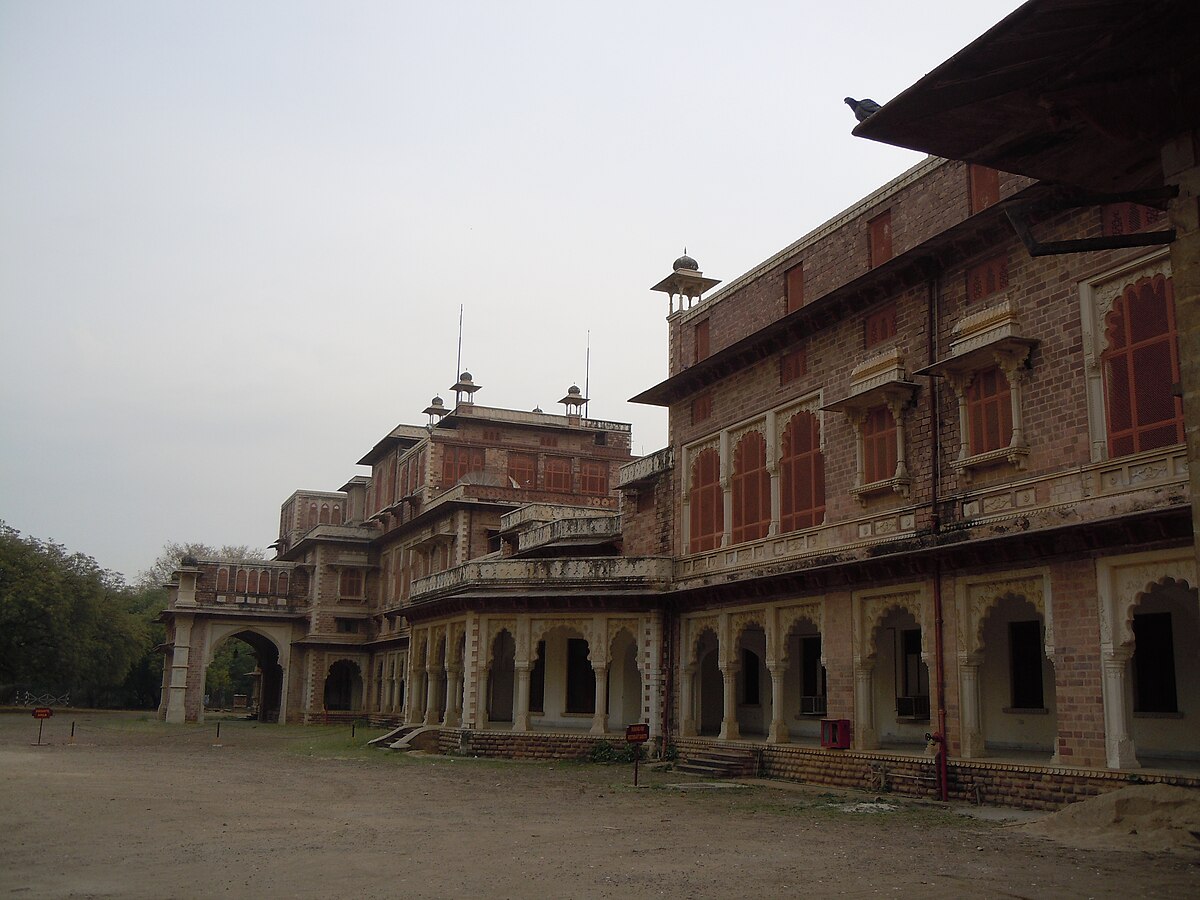¤ 10+ minutes Read
Places to visit in Jaipur
Known as the Pink City, Jaipur is a vibrant blend of royal heritage and modern charm. With its majestic forts, ornate palaces, colorful bazaars, and rich traditions, the city offers a unique glimpse into Rajasthan’s glorious past. Whether you’re wandering through ancient corridors or enjoying authentic Rajasthani cuisine, every corner of Jaipur tells a fascinating story.
Wiki Link: Places to visit
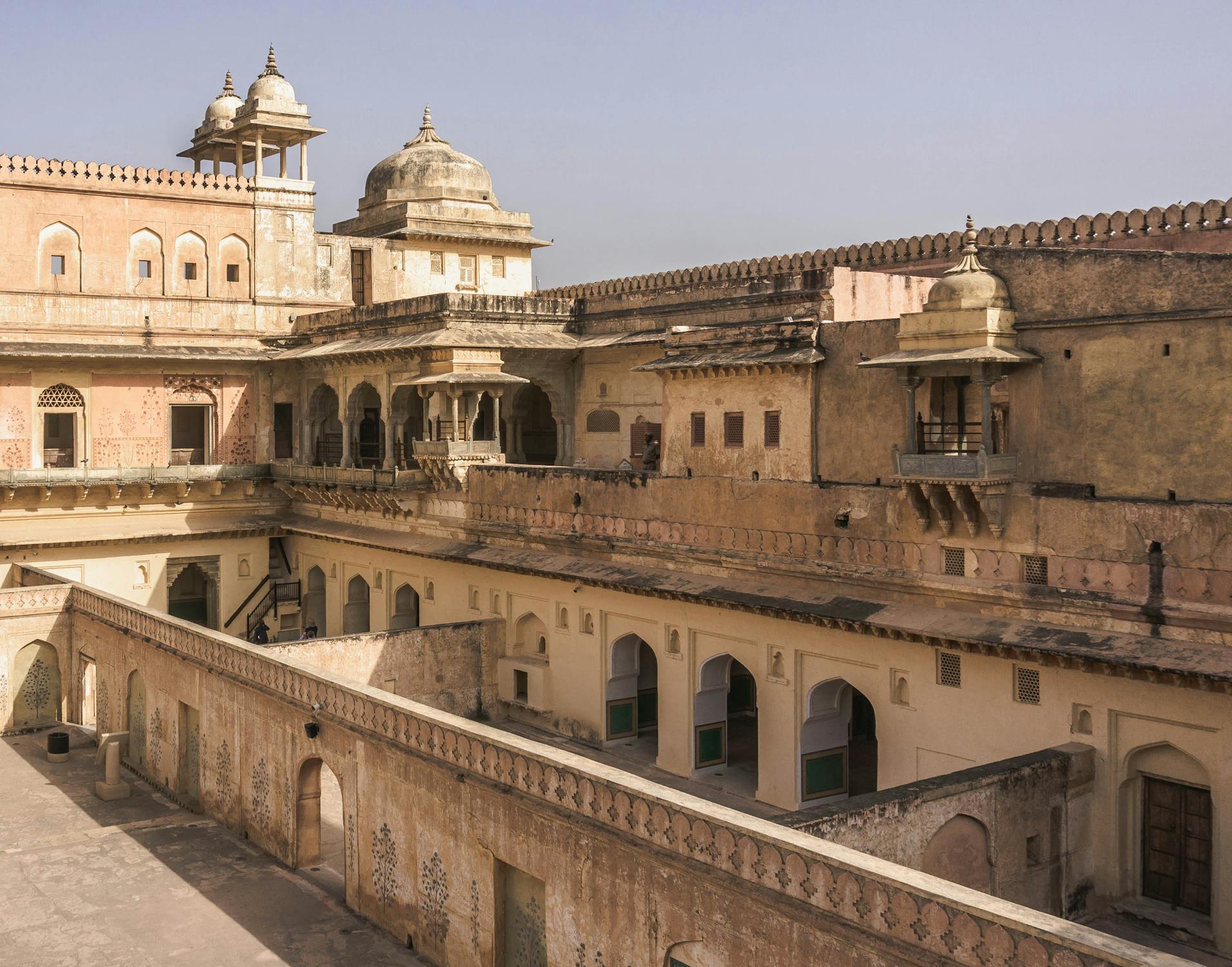
Amber Fort
One of the most iconic forts in Rajasthan, Amber Fort (or Amer Fort) sits atop a hill overlooking Maota Lake. Built in the 16th century by Raja Man Singh, this majestic structure showcases a blend of Rajput and Mughal architecture. Intricate mirror work in Sheesh Mahal, ornate gateways, and large courtyards highlight its royal past.
Visitors can enjoy an elephant ride to the fort or take a jeep up the winding paths. In the evening, a light and sound show narrates the fort’s glorious history. It’s just 11 km from Jaipur city.

Jal Mahal
Though not open to public entry, this beautiful water palace is a popular photo stop. Its unique architecture and serene lake surroundings make it a must-see.
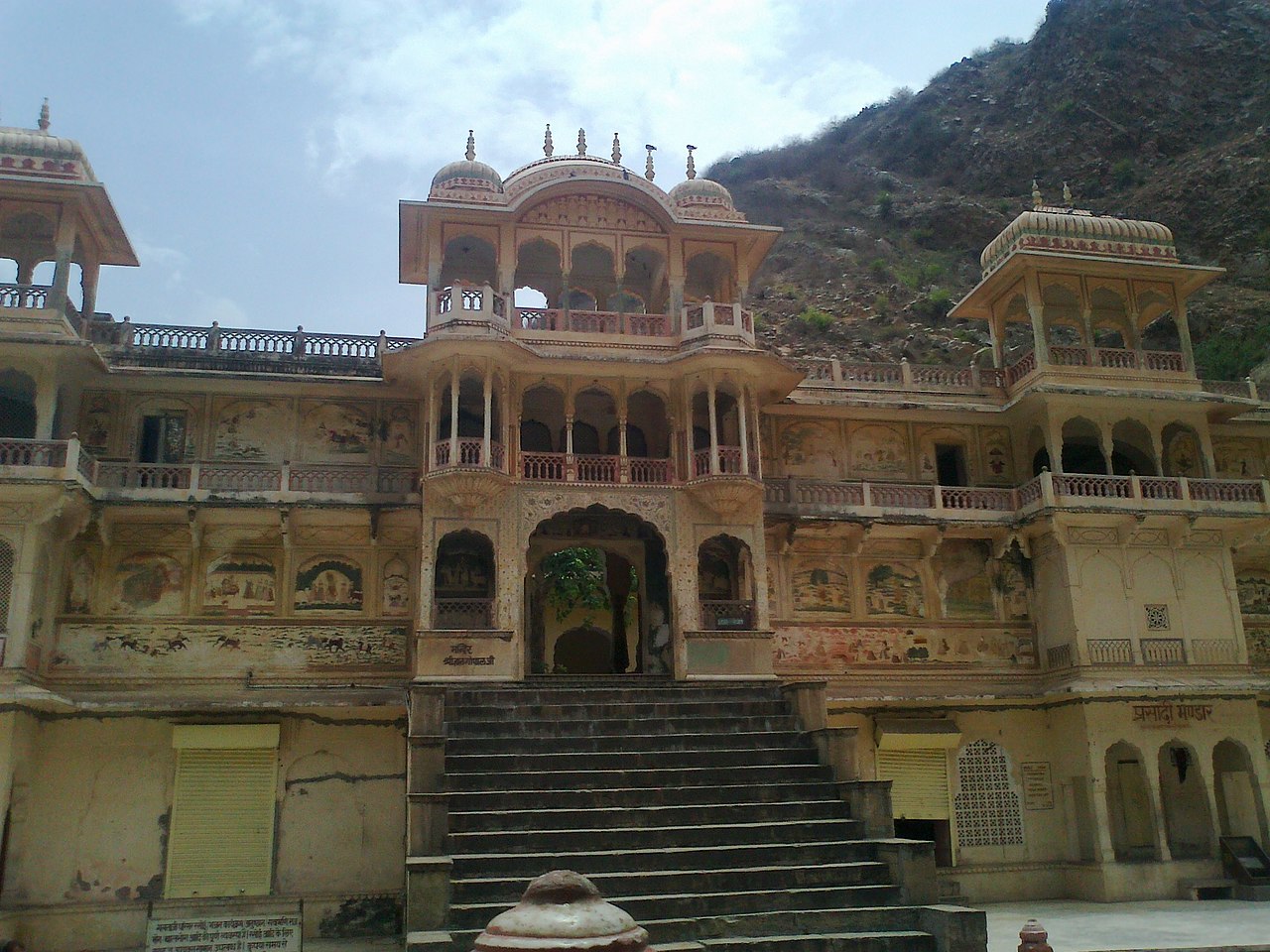
Galtaji Temple
Set amidst the Aravalli hills, this temple complex is famous for its sacred water tanks, pavilions, and friendly monkeys. It’s a blend of nature and spirituality.
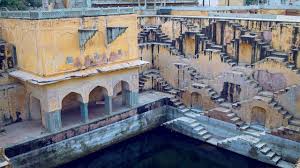
Panna Meena ka Kund
A stunning 16th-century stepwell near Amber Fort, this architectural wonder is known for its symmetrical staircases & photo-worthy aesthetics.

Birla Mandir
Beautiful modern temple dedicated to Lord Vishnu and Lakshmi, is made of white marble and sits at the base of Moti Dungri hill. It glows spectacularly at night.

City Palace
Located in the heart of Jaipur, the City Palace is a splendid complex of courtyards, gardens, and buildings. It was built by Maharaja Sawai Jai Singh II and still serves as the royal family’s residence. The palace blends Rajasthani and Mughal architecture and houses museums displaying royal costumes, weapons, and artefacts.
Key highlights include the Chandra Mahal, Mubarak Mahal, and beautifully painted Pritam Niwas Chowk gates. The palace is a testament to Jaipur’s regal legacy and architectural finesse.
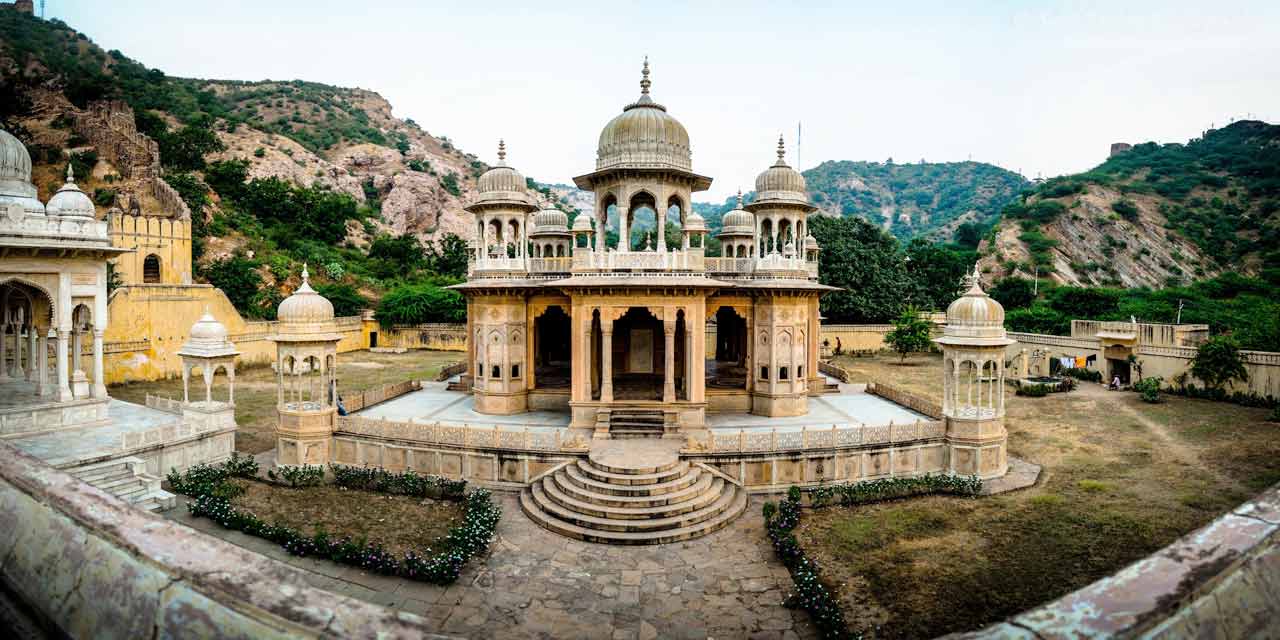
Gatore Ki Chhatriyan
This peaceful site houses the marble cenotaphs of Jaipur’s royal family. Its quiet location and detailed carvings make it an underrated gem.

Anokhi Museum of Hand Printing
Located near Amber Fort, this museum is dedicated to the art of hand-block printing. Visitors can explore exhibits and even try printing themselves.

Raj Mandir Cinema
More than just a place to watch films, it is an architectural delight. Its opulent interiors and unique design attract cinema lovers.
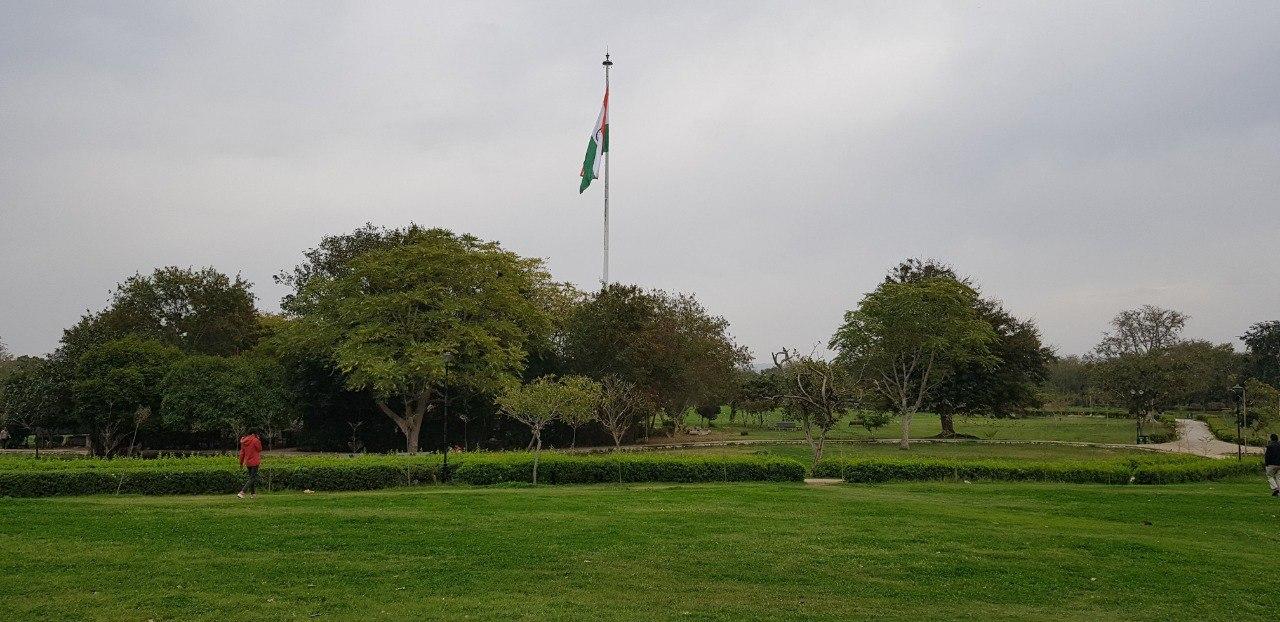
Central Park
One of the largest parks in Jaipur, it offers walking/jogging tracks, musical fountains, and a massive Indian National Flag soaring high above.

Hawa Mahal
The Hawa Mahal, or “Palace of Winds,” is one of Jaipur’s most photographed landmarks. Built in 1799 by Maharaja Sawai Pratap Singh, it features 953 small windows (jharokhas) designed to allow royal women to observe street festivities while staying unseen.
The honeycomb structure is a brilliant example of Rajputana architecture with red and pink sandstone. Climb to the top for a panoramic view of Jaipur’s bustling bazaars and City Palace. Early mornings are ideal for photographs as the façade glows in the rising sun.

Nahargarh Fort
Overlooking the city, Nahargarh Fort once served as a retreat for the royal family. The fort offers breathtaking views of Jaipur, especially at sunset.
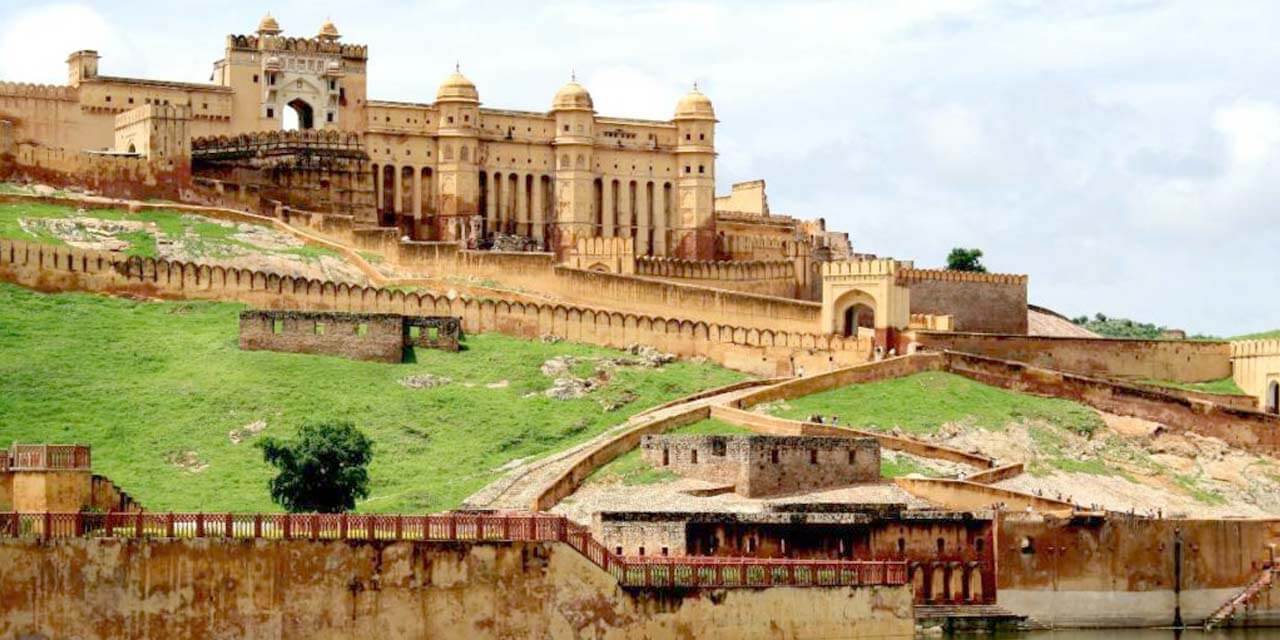
Jaigarh Fort
Built to protect Amber Fort, Jaigarh is known for its military structures, underground tunnels, and Jaivana Cannon—the world’s largest cannon on wheels.

Albert Hall Museum
This Indo-Saracenic architectural gem houses a vast collection of artifacts including weapons, paintings, jewelry, and even an Egyptian mummy.

Jantar Mantar
A UNESCO World Heritage Site, Jantar Mantar is an astronomical observatory built by Maharaja Sawai Jai Singh II in the early 18th century. It houses the world’s largest stone sundial and 19 other architectural instruments used to measure time, predict eclipses, and track celestial bodies.
The observatory reflects Jaipur’s scientific and cultural advancement during the royal era. It remains one of the best-preserved and most accurate ancient observatories in the world. A guided tour helps understand the sophisticated instruments and their uses.
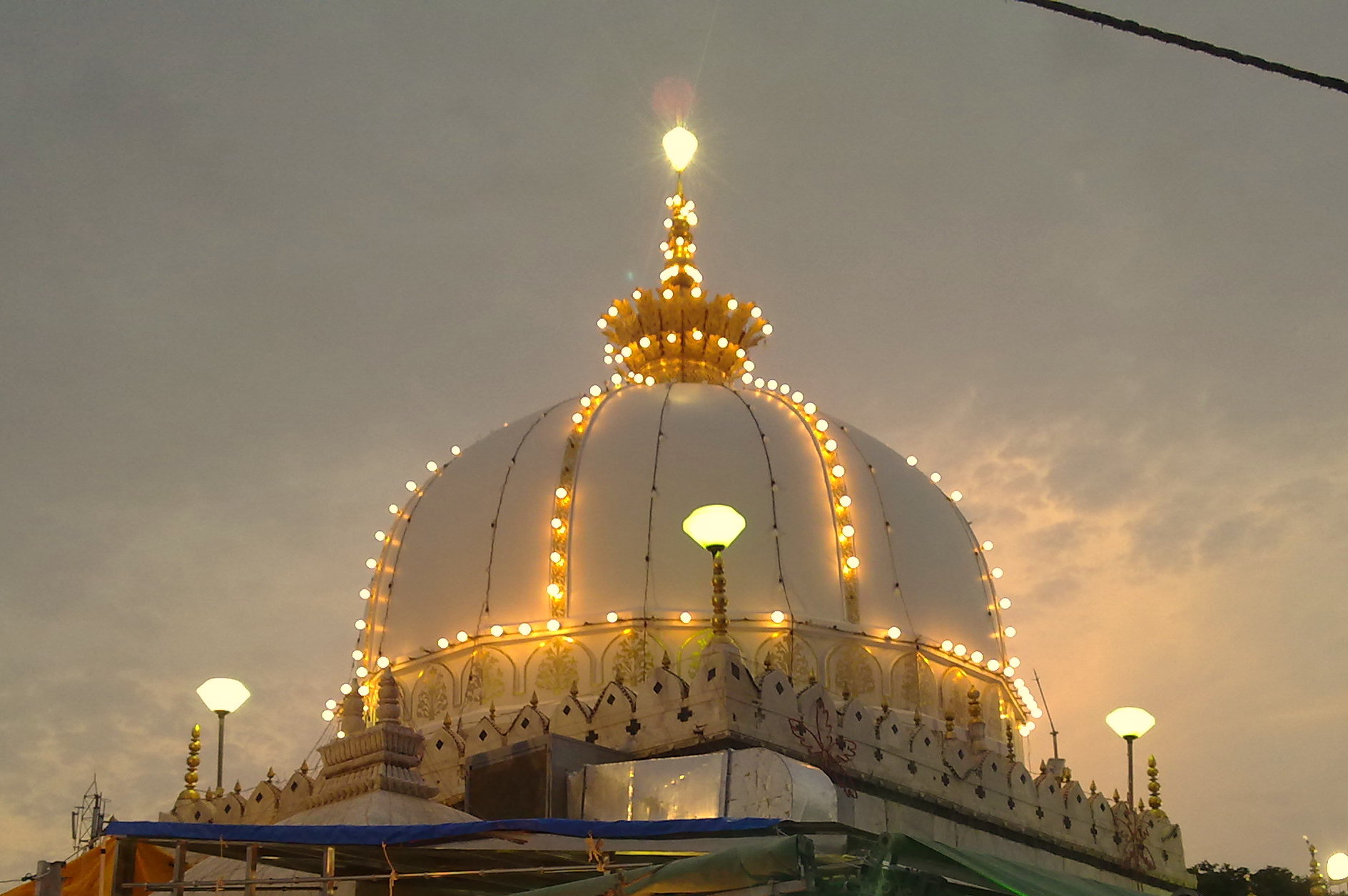
Ajmer
A spiritual and cultural hub located around 135 km from Jaipur. It is most famous for the Ajmer Sharif Dargah, a Sufi shrine dedicated to Khwaja Moinuddin Chishti, drawing pilgrims from across religions.
The city is nestled between the Aravalli hills and also features the serene Ana Sagar Lake and the historical Adhai Din Ka Jhonpra, a mosque with Indo-Islamic architecture. Ajmer serves as a gateway to Pushkar and offers a mix of heritage, devotion, and local flavors. Don’t miss sampling authentic Rajasthani snacks and sweets while strolling through its vibrant bazaars.
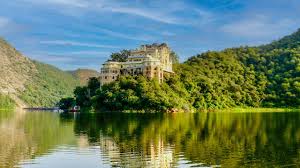
Alwar
This historic city is home to Bala Qila Fort, City Palace Museum, and Siliserh Lake. Alwar is a perfect weekend escape with a royal touch.

Neemrana Fort Palace
A 15th-century heritage hotel, is known for its architecture, zip-lining experiences, and romantic ambience.
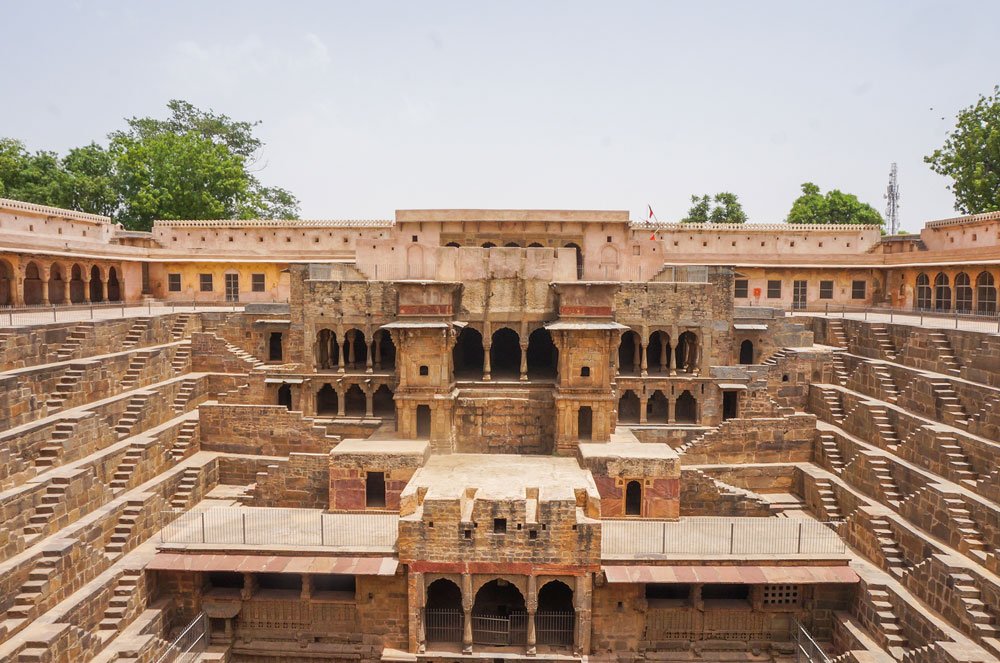
Chand Baori
One of the deepest and largest stepwells in India, Chand Baori stuns visitors with its symmetrical design and historical intrigue.
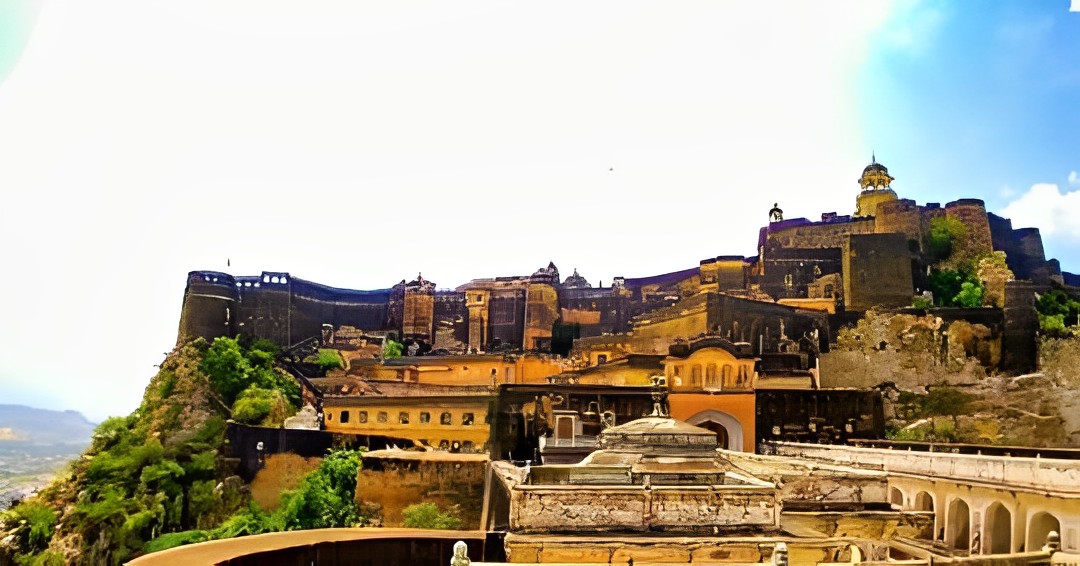
Kuchaman Fort
The heritage havelis reflect the rich Marwari architecture and cultural history, offering an offbeat heritage experience.

Pushkar
Just a short drive from Ajmer, Pushkar is one of India’s oldest cities and a significant Hindu pilgrimage site. It’s home to the rare Brahma Temple and the sacred Pushkar Lake, believed to have been formed by Lord Brahma himself.
The town hosts the famous Pushkar Camel Fair, a vibrant celebration of culture, livestock trading, and folk performances. Its laid-back vibe, spiritual aura, and colorful markets attract both devotees and backpackers. Sunset at the ghats and cafes by the lake are popular experiences.
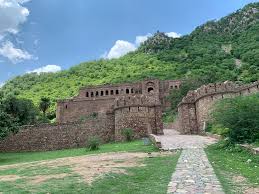
Bhangarh Fort
Often dubbed India’s most haunted site, Bhangarh Fort is a 17th-century ruin nestled in the Aravallis. It’s popular among thrill-seekers and history lovers alike.

Abhaneri
Famed for the massive and geometrically stunning Chand Baori stepwell, Abhaneri is an architectural gem and houses ancient temples worth exploring.

Tonk
A lesser-known treasure, Tonk is rich in Indo-Islamic architecture, old havelis, and a Persian/Arabic manuscript library housed in Sunehri Kothi.

Sambhar Salt Lake
Located about 80 km from Jaipur, it is India’s largest inland saltwater lake. It offers surreal, mirror-like views, especially during sunrise and sunset, making it a dream spot for photographers. The lake plays a vital role in salt production and supports a unique ecology.
It attracts migratory birds like flamingos, pelicans, and storks, particularly during winter. The surrounding villages and railway tracks offer a rustic charm, perfect for offbeat explorers. Bollywood films and web series have been shot here due to its striking white landscapes.
Rajasthan Blogs
- Rajasthan Cultural guide
- Places to visit in Rajasthan
- Places to visit nearby Rajasthan
- India’s most popular destination
- India’s archaeological marvels
Recommended articles
- Jaipur Cultural guide
- Places to visit in Jaipur
- Places to visit nearby Jaipur
- India’s most popular destination

